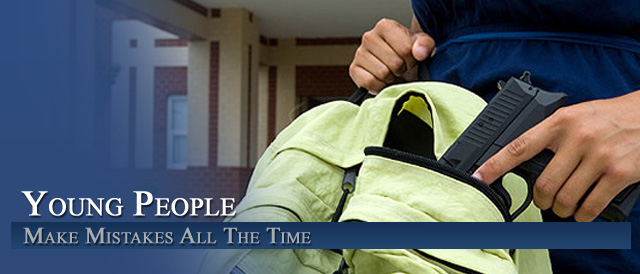
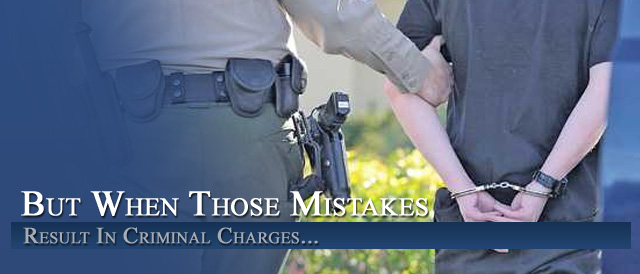
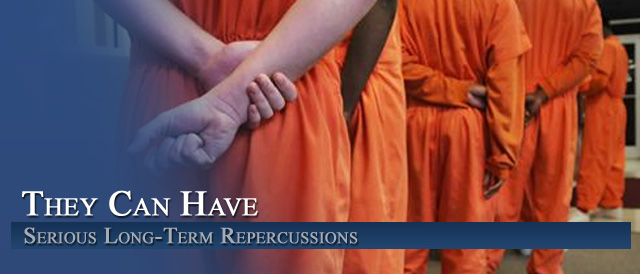
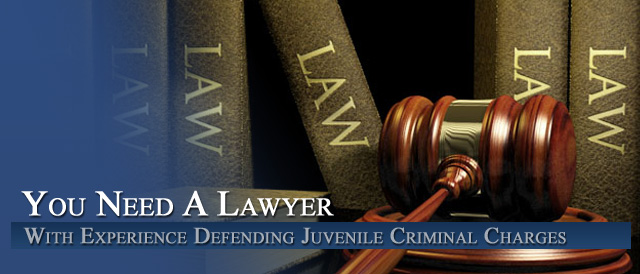
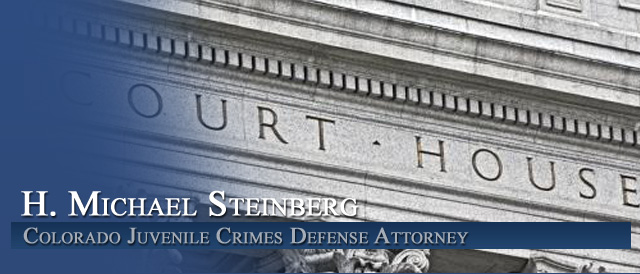
Juvenile Parole 19-2-1002
As a former Senior – Career Arapahoe – Douglas County District Attorney – in his 13 years (1984 – 1997) years as a prosecutor – H. Michael was assigned to the prosecution of hundreds of juvenile prosecutions. As a Colorado Criminal Defense Lawyer for the last 16 years (1997 – 2013) – he has successfully handled hundreds more juvenile cases.
Juvenile criminal defense lawyers must be specialized in this area and must have specialized training and experience to be effective on behalf of their clients… essentially just children. Because Juvenile Court is different than adult court – an experienced lawyer in adult may be incompetent to practice in juvenile court.
Where your child’s freedom and future is at stake…go with experience every time.
Here is the statute referenced in the article that linked you to this page:
19-2-1002. Juvenile parole
(1) Juvenile parole board – hearing panels authority. (a) The juvenile parole board, referred to in this part 10 as the “board”, established pursuant to section 19-2-206 is authorized to grant, deny, defer, suspend, revoke, or specify or modify the conditions of any parole for any juvenile committed to the department of human services as provided in sections 19-2-601 and 19-2-907. In addition to any other conditions, the board may require, as a condition of parole, any adjudicated juvenile to attend school or an educational program or to work toward the attainment of a high school diploma or a GED, as that term is defined in section 22-33-102 (7), C.R.S.; except that the board shall not require any such juvenile to attend a school from which he or she has been expelled without the prior approval of that school’s local board of education. The board may modify any of its decisions, or those of the hearing panel, except an order of discharge.
(2) (a) The board or a hearing panel shall have subpoena power and the power to administer oaths to secure attendance and testimony at hearings before the board. All relevant records pertaining to the juvenile shall be made available to the board.
(b) The board or hearing panel shall take into consideration the results of the objective risk assessment administered by the department of human services.
(3) (a) Hearing panels consisting of two members of the board shall interview and review the record of each juvenile who comes before the board for the granting of parole. Whenever possible, one of the hearing panel members shall be a representative of an executive department, and the other shall be a member from the public at large. A hearing panel may grant, deny, defer, suspend, revoke, or specify or modify the conditions of any parole of a juvenile that are in the best interests of the juvenile and the public; except that:
(I) If the members of a hearing panel disagree, a review of that case shall be referred to the board for review and a decision made by a majority vote of the board members present. At least a quorum, as defined in section 19-2-206 (4), of the board must be present to a make a decision under this subparagraph (I).
(II) The hearing panel shall not have authority to grant parole to juveniles committed as violent juvenile offenders as described in section 19-2-516 (3) or aggravated juvenile offenders as described in section 19-2-516 (4). In such cases, the board shall conduct a hearing and make a decision by a majority vote of the board members present at the hearing. However, if expiration of the juvenile’s commitment is imminent, as defined by the juvenile parole board, the hearing panel shall hold a hearing and make a recommendation to the board. The board shall review the case and a make a decision by a majority vote of the board members present.
(III) If a written request is made by the juvenile, his or her parents, his or her guardian, or the executive director of the department of human services or his or her designee, the board may review the case of any juvenile who has been interviewed by a hearing panel. If such a review is made, the board shall have the authority to affirm or reverse the decision of the hearing panel or to impose such additional conditions for parole as the board deems appropriate.
(a.5) If a juvenile, while under a juvenile commitment, is in jail pending adult charges, the board may conduct a parole hearing without the presence of the juvenile.
(a.7) When the board conducts a hearing pursuant to paragraph (a) or (a.5) of this subsection (3), a quorum, as defined in section 19-2-206 (4), shall be present.
(b) (I) In addition to any other conditions, the hearing panel may require, as a condition of parole, any adjudicated juvenile to attend school or an educational program or to work toward the attainment of a high school diploma or a GED, as that term is defined in section 22-33-102 (7), C.R.S.; except that the hearing panel shall not require any such juvenile to attend a school from which he or she has been expelled without the prior approval of that school’s local board of education.
(4) The hearing panel shall be assisted in its duties by the juvenile parole board administrator appointed pursuant to section 19-2-206 (6). Said administrator shall also arrange training for the members of the juvenile parole board in all aspects of the juvenile justice system. It shall be mandatory for members of the board to attend such training.
(5) (a) If the hearing panel or the board determines that parole should be granted, the hearing panel shall establish six months as the length of the parole supervision. However, for a juvenile committed to the department of human services due to an adjudication for an offense specified in paragraph (b) of this subsection (5), the hearing panel may extend the period of parole supervision up to an additional fifteen months if the hearing panel makes findings of special circumstances that warrant an extended period of parole services for the juvenile.
(b) The provisions of paragraph (a) of this subsection (5) allowing for extension of the period of parole shall apply to juveniles committed to the department of human services due to an adjudication for one or more of the following offenses:
(I) Any offense specified in article 3 of title 18 or in part 3 of article 4 of title 18, C.R.S., that would constitute a felony if committed by an adult;
(II) Incest, as described in section 18-6-301, C.R.S.;
(III) Aggravated incest, as described in section 18-6-302, C.R.S.;
(IV) Child abuse, as described in section 18-6-401, C.R.S., that would constitute a felony if committed by an adult;
(V) Fourth degree arson, as described in section 18-4-105, C.R.S., that would constitute a felony if committed by an adult;
(VI) Assault during escape, as described in section 18-8-206, C.R.S., that would constitute a felony if committed by an adult;
(VII) Illegal possession of a handgun by a juvenile, as described in section 18-12-108.5, C.R.S., that would constitute a felony if committed by an adult;
(VIII) Illegal possession of a handgun by a juvenile, as described in section 18-12-108.5, C.R.S., that would constitute a misdemeanor if committed by an adult, if the juvenile is contemporaneously committed to the department of human services for an offense that would constitute a felony if committed by an adult; or
(IX) Attempt, conspiracy, or solicitation to commit any of the offenses specified in this paragraph (b), which attempt, conspiracy, or solicitation would constitute a felony if committed by an adult.
(c) Upon completion of the period of parole supervision as established by the board, the juvenile shall be deemed to have discharged the juvenile’s sentence to commitment in the same manner as if the sentence were discharged pursuant to law.
(d) (I) If the juvenile court commits a juvenile to the department of human services for concurrent sentences based on the commission of two or more offenses or consecutive sentences based on commission of two or more offenses, the juvenile shall be subject to one six-month mandatory period of parole, unless the period of parole is extended pursuant to paragraph (a) of this subsection (5).
(II) As used in this paragraph (d), “concurrent sentence” means sentences identified by the court as concurrent and any sentences, or portions thereof, that are served simultaneously and that are the basis of the juvenile’s treatment services during the juvenile’s commitment.
(e) (I) If a juvenile’s parole is revoked pursuant to section 19-2-1004, the juvenile shall serve all or a portion of the remainder of his or her sentence to commitment, and the period of reparole or extended period of reparole imposed pursuant to paragraph (a) of this subsection (5), shall be reduced by any time served on parole prior to the revocation. The provisions of this paragraph (e) shall not limit the board’s authority to grant, deny, defer, suspend, revoke, or modify a juvenile’s parole within the period of parole.
(II) If a juvenile’s parole is revoked or modified pursuant to section 19-2-1004, and the juvenile has completed the period of commitment imposed by the court, the period of parole, or extended period of parole imposed pursuant to paragraph (a) of this subsection (5), shall continue pursuant to section 19-2-909 (1) (c) (II). The period of parole shall continue regardless of whether the revocation or modification authorizes the department of human services to place the juvenile in a residential placement while on parole status. This provision shall not limit the board’s authority to grant, deny, defer, suspend, revoke, or modify a juvenile’s parole within the period of parole.
(6) If the hearing panel or the board determines that parole should be granted, the parolee shall be ordered to pay any unpaid restitution that has previously been ordered as a condition of parole.
(7) Notice. (a) The board, prior to consideration of the case of a juvenile for parole, shall notify the committing court, any affected juvenile community review board, the prosecuting attorney, and any victims of the juvenile’s actions whose names and addresses have been provided by the district attorney of the time and place of the juvenile’s hearing before the board or a hearing panel of the board. The notice shall be given in order that the persons notified will have an opportunity to present written testimony to the hearing panel or the board. The board, in its sole discretion, may allow oral testimony at any hearing and has sole discretion regarding who may attend a juvenile parole hearing.
(b) (I) (A) Prior to consideration of the case of a juvenile for parole, the board shall provide notice of the time and place of the juvenile’s hearing before the board or a hearing panel of the board to a victim who has provided to the division of youth corrections or the board a written statement pursuant to sections 24-4.1-302.5 and 24-4.1-303, C.R.S. The notice and subsequent interactions with the victim shall be consistent with the provisions of article 4.1 of title 24, C.R.S.
(B) The board shall notify the victim of changes in the juvenile’s parole pursuant to section 24-4.1-303 (14.3), C.R.S.
(II) For a youth that is currently serving parole that implicates the provisions of article 4.1 of title 24, C.R.S., the division of youth corrections shall notify the board of any discharge as a matter of law and any placement change that may impact public safety or victim safety as determined by the division of youth corrections, including any escape or recapture.
(8) Representation of juvenile – parent. The juvenile and his or her parents or guardian shall be informed that they may be represented by counsel in any hearing before the board or a hearing panel to grant, modify, or revoke parole.
(9) Parole discharge. (a) The board may discharge a juvenile from parole after the juvenile has served the mandatory parole period of six months but prior to the expiration of his or her period of parole supervision when it appears to the board that there is a reasonable probability that the juvenile will remain at liberty without violating the law.
(b) (I) Based upon a request and recommendation by the division of youth corrections, the board may discharge all or a portion of a juvenile’s period of parole, as defined in section 19-2-909 (1) (b), without holding a hearing before the board or a hearing panel of the board, if the board finds that:
(A) The juvenile is unavailable to complete the period of parole or the extended period of parole and the juvenile is not likely to become available in a time or manner in which he or she will benefit from parole services and neither community safety nor restorative justice interests will be served through the imposition or continuation of the juvenile’s parole; or
(B) The community interest in safety or restorative justice will not be served through the imposition or continuation of juvenile parole because the juvenile is under the adult probation supervision of the district court.
(II) As used in this subsection (9), a juvenile is unavailable to complete the period of parole if:
(A) The juvenile, pursuant to an adult sentence, has been placed in a department of corrections facility, adult community corrections, the youthful offender system, or a local jail as defined in section 17-1-102, C.R.S.; or
(B) The juvenile has been or will be transferred out of the state of Colorado and the division of youth corrections determines that the discharge is not in conflict with the interstate compact on juveniles, part 7 of article 60 of title 24, C.R.S.; or
(C) The juvenile is in a medical, mental, or treatment facility or similar institution; or
(D) The board finds any other circumstance that constitutes unavailability as established in rule.
(c) The board may discharge a juvenile from parole before completion of the mandatory six-month parole period when the board finds that the juvenile meets, at a minimum, all of the following conditions of special achievement:
(I) Graduation from a public or accredited nonpublic high school or completion of a GED, as that term is defined in section 22-33-102 (7), C.R.S.;
(II) Payment of one hundred percent of any restitution the juvenile has been ordered to pay;
(III) Certification by the juvenile’s parole officer that the juvenile is ready for discharge from parole, which shall take into consideration the results of an objective risk assessment conducted by the department of human services and shall be based upon researched factors that have been demonstrated to be correlative to risk to the community; and
(IV) Presentation to the board of a plan of action prepared by the juvenile that includes the steps the juvenile will accomplish to ensure his or her transition to law-abiding citizenship. If the juvenile’s plan of action includes an intent to enlist in military service, the plan shall specify the interim steps that the juvenile will take prior to entering military service.
(d) A discharge from parole pursuant to this subsection (9) shall have the same legal effect as if parole had been discharged upon completion of juvenile parole or when the sentence to commitment was discharged as a matter of law.
(10) Notwithstanding any provisions of law to the contrary, the department of human services shall not retain custody of or jurisdiction over an individual who reaches twenty-one years of age. The sentence to commitment and the period of parole are discharged as a matter of law when a juvenile reaches twenty-one years of age.
Other Articles of Interest:
- Sentencing – Commitment to the Department of Human Services 19-2-909
- Birdseye Statutory View – Colorado Juvenile Criminal System
- The Colorado Juvenile Justice System and Juvenile Parole – Parole Violations II of II
- Aggravated Juvenile Offender 19-2-601
- Commitment to Department of Human Services 19-2-921












